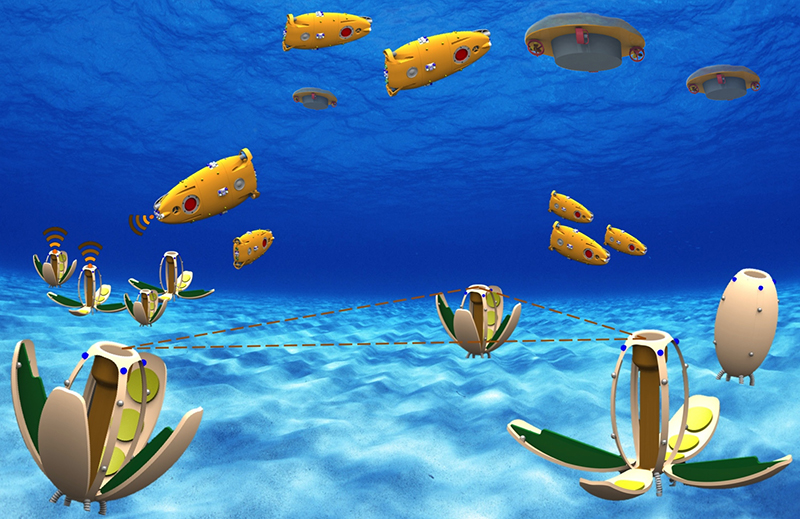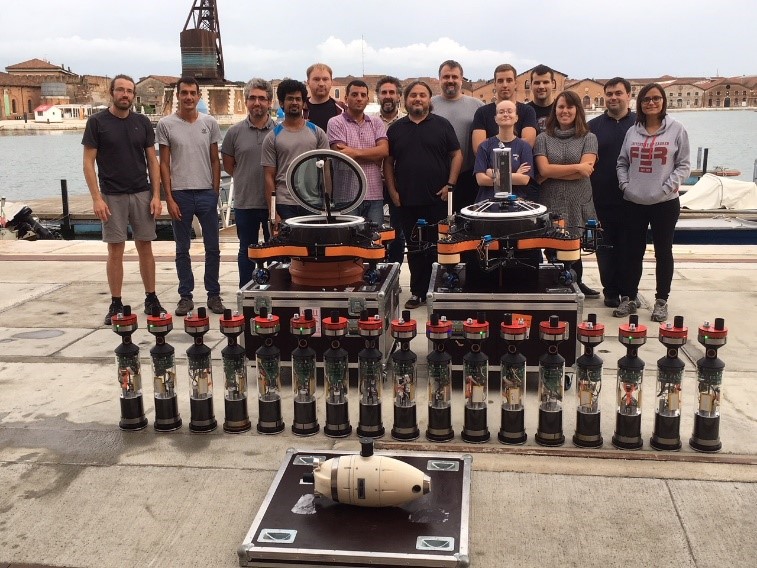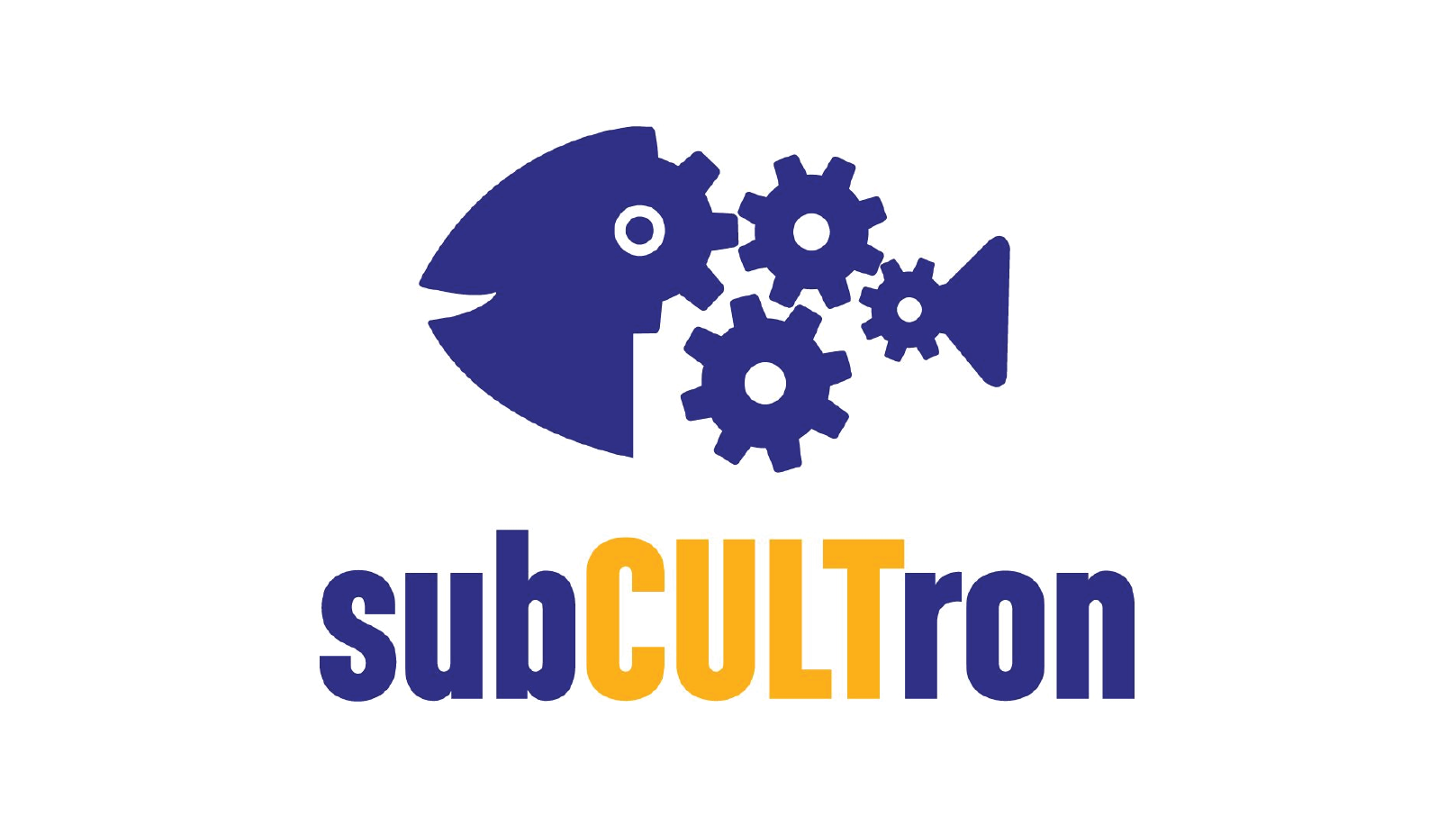 Project name: Submarine Cultures Perform Long-Term Robotic Exploration of Unconventional Environmental Niches
Project name: Submarine Cultures Perform Long-Term Robotic Exploration of Unconventional Environmental Niches
Project acronym: subCULTron
Dates: 01.04.2015 - 30.04.2019
Total budget: 3 987 651 EUR
Funding: EU Horizon 2020, FET Proactive
Grant Agreement number: 640967
website: http://zool33.uni-graz.at/artlife/subCULTron
subCULTron
subCULTron aims for achieving long-term autonomy in a learning, self-regulating, self-sustaining underwater society/culture of robots in a high-impact application area: Venice, Italy.
One of the envisioned goals of the subCULTron project is to develop an underwater multi-robot system for intelligent long-term monitoring of underwater ecosystems. The underwater system is comprised of 3 different types of robots. Artificial mussels (aMussels) are sensor hubs attached to the sea-ground, which monitor the natural habitat, including biological agents like algae, bacterial incrustation, and fish. They serve as the collective long-term memory of the system, allowing information to persist beyond the runtime of other agents, enabling the system to continue developing from previously learned states. On the water surface, artificial lily pads (aPads) interface with the human society, delivering energy and information influx from ship traffic or satellite data. Between those two layers, artificial fish (aFish) move, monitor and explore the environment and exchange information with aMussels and aPads.
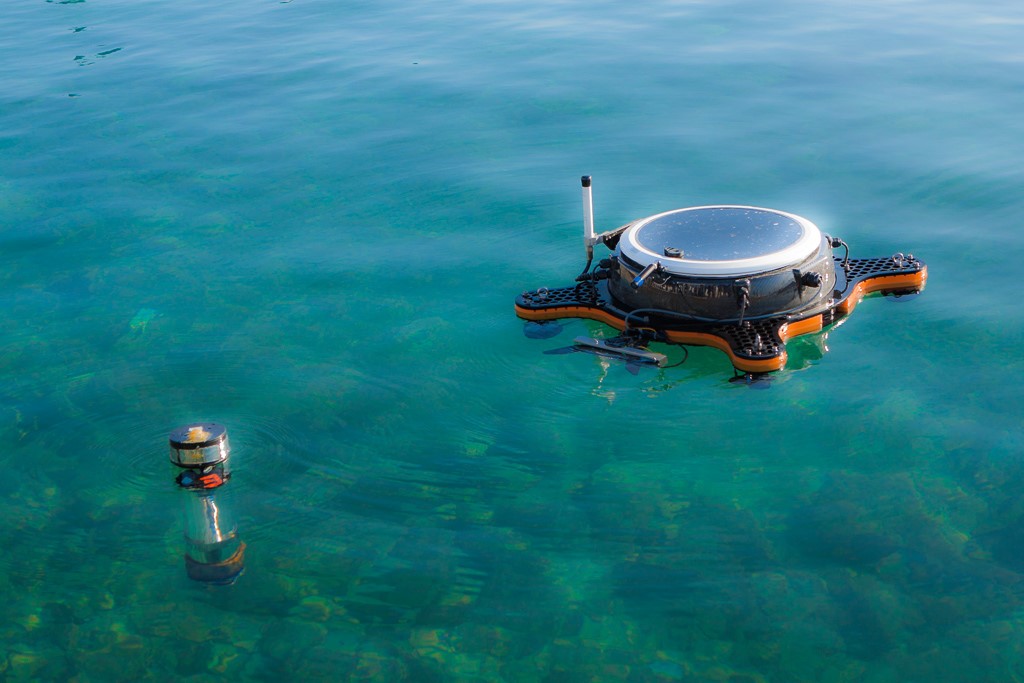
aPad
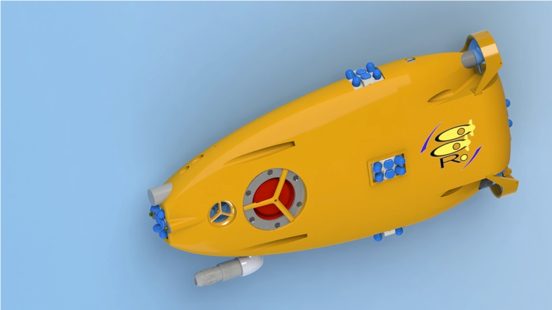
aFish
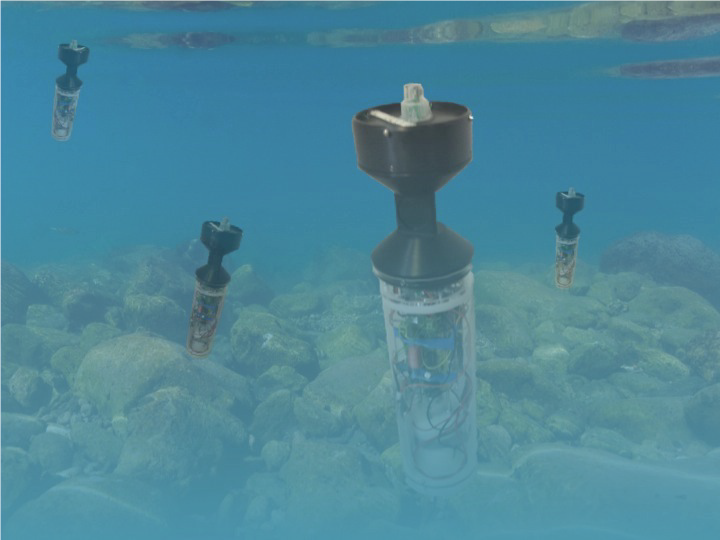
aMussel
This project is developed by:
- University of Graz – Artificial Life Lab (AT)
- Université Libre de Bruxelles (BE)
- CYBERTRONICA RESEARCH - Research Center of Advanced Robotics and Environmental Science (CH)
- ARMINES: Co-leader of Artificial systems and Bioinspired behaviours (FR)
- SSSA Scuola Superiore Sant’Anna (IT)
- UNIZG-FER University of Zagreb Faculty of Electrical Engineering and Computing (HR)
- CORILA: Consortium for coordination of research activities concerning the Venice lagoon system (IT)
Barbara Arbanas attended the “Lucia 2016 – 3nd PhD school on Artificial Intelligence and Robotics”, held in Örebro, Sweden on December 12-16, 2016. The school provided a unique training and human experience. The lecture topics covered technologies at the forefront of research in AI and in Robotics, while some of these were applied through hands-on exercises on real robots. The winter school was also an opportunity to discuss our research with top-level scholars, as well as other students, and to extend networks. Barbara also presented project subCULTron in an interactive poster session.



